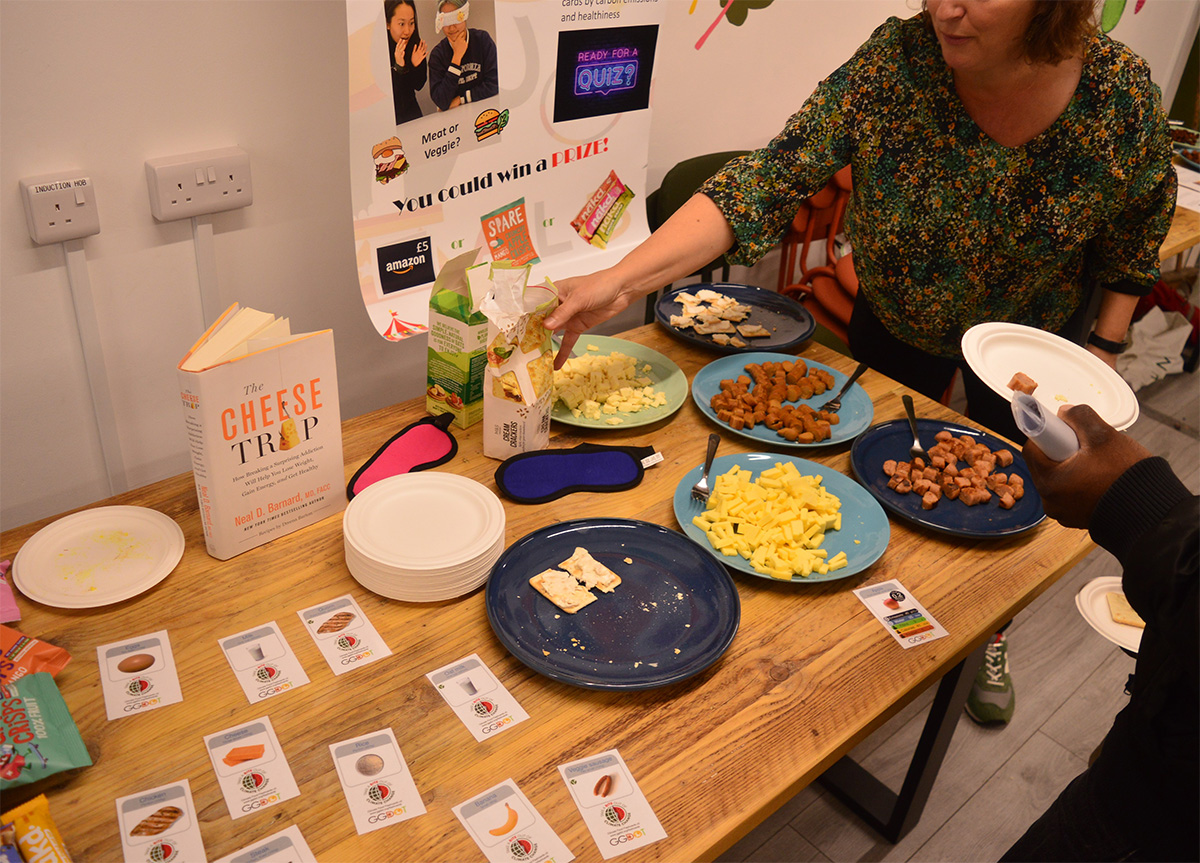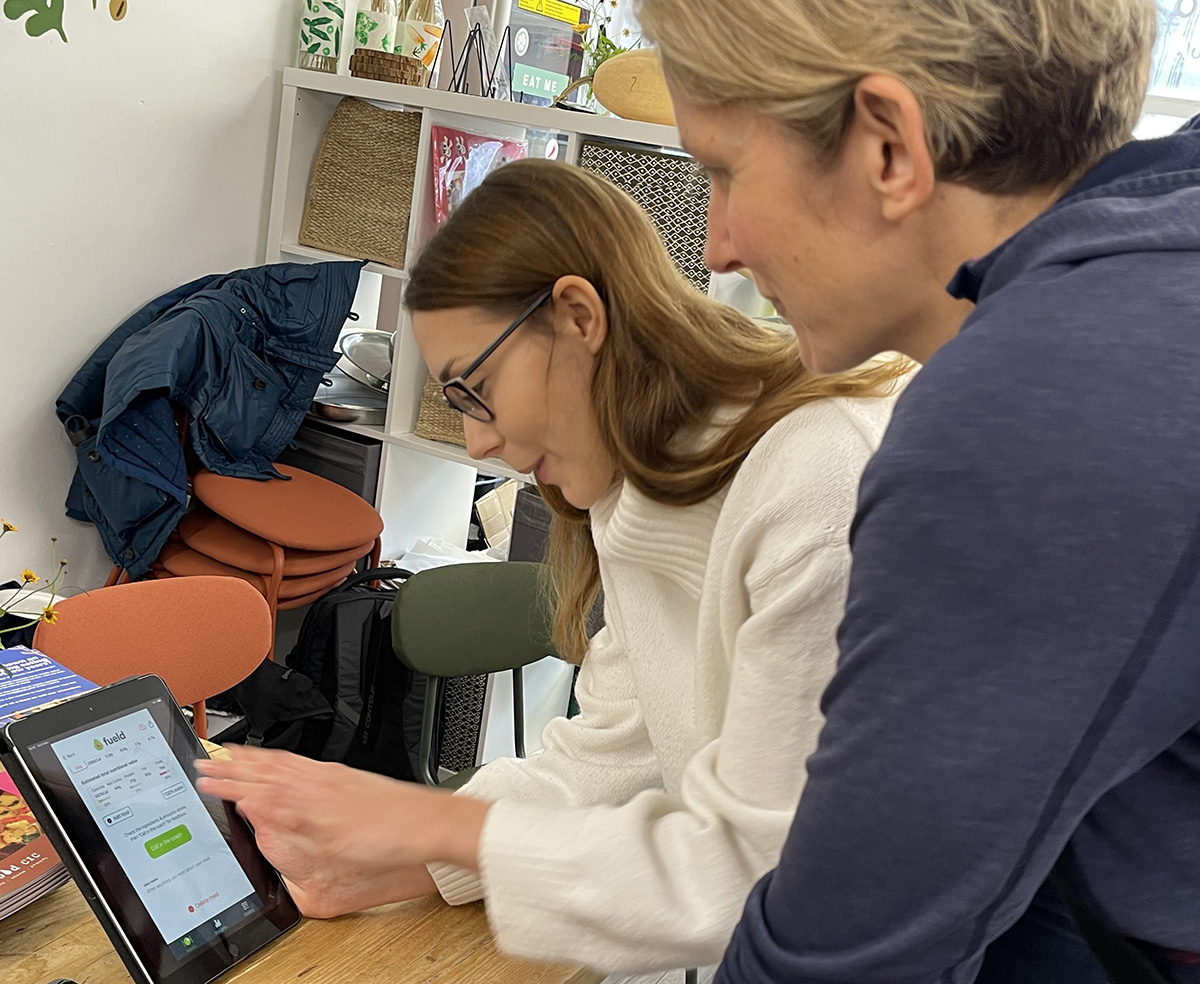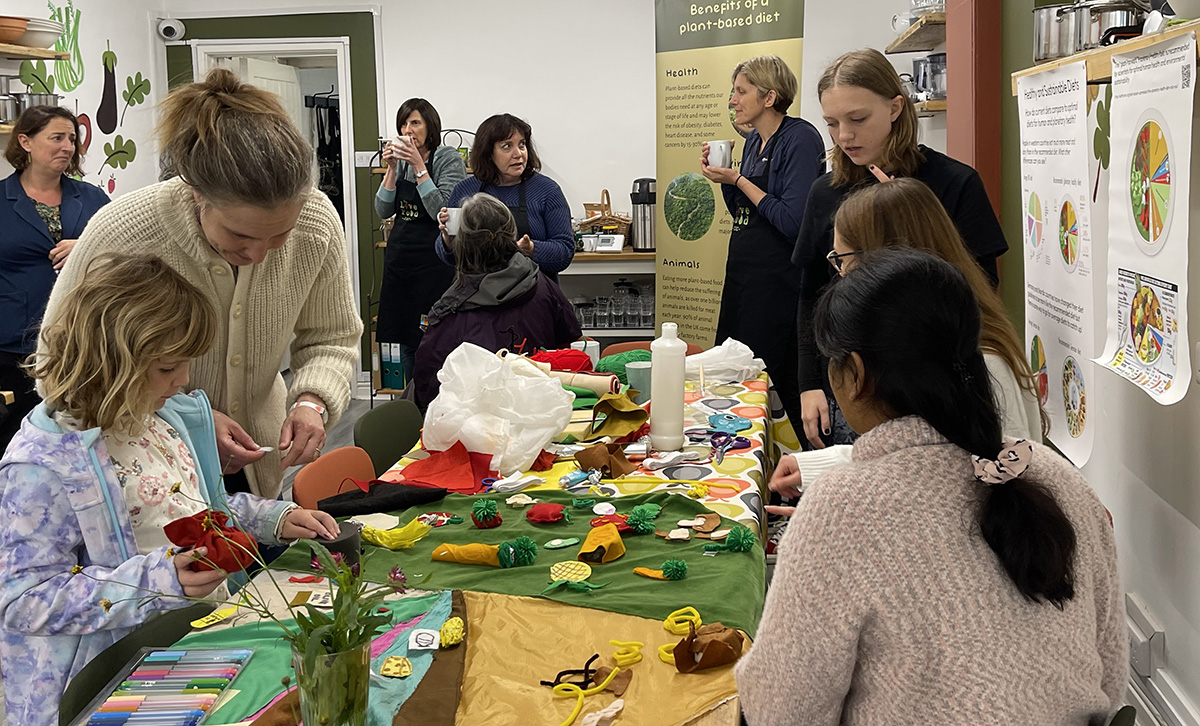Exploring plant power
We partnered with Love Food CIC in November, to hold an engaging community-based event that highlighted the benefits to environment and health of plant-based diets.
Part of the Festival of Social Science, the day also focused on the critical role that diet can play in addressing climate change. In this blog post, Louise Venables and Natalia Lawrence reflect on the event and its outcomes.
Why it matters
Plant-based diets are associated with 75% lower environmental impact from factors such as carbon emissions, land and water use. They are also estimated to add 10 years to life expectancy, while preventing 24% of premature deaths.
We wanted to share these insights through a series of interactive activities, and hopefully leave a lasting impression on attendees. So on Saturday 9th November 2024, the University of Exeter and Love Food CIC welcomed over 40 participants of all ages at the new Love Food CIC Community Food Hub.
The event, titled ‘Greens & Gains: A Fun Dive into Plant Power!’, featured three activity stations.
A day of interactive learning
At the food station, visitors participated in a blindfolded “Animal or Plant Taste Test Challenge”, and enjoyed “Bizarre Botanical Bites” including jackfruit, tempeh, tofu, seitan and aquafaba. Many people were tasting these foods for the first time and commented on how delicious they were. The Food Ranking Challenge spurred discussions as attendees ranked foods by environmental impact, with surprising revelations – like the high environmental impact of cheese and relatively low impact of avocados.

The food station with the food ranking quiz and the blind taste test.
The digital station allowed attendees to try hands-on demonstrations of AI-assisted food tracking (Fueld) and brain-training apps, including the Food Trainer app developed by University of Exeter researchers to support healthier, more sustainable eating habits.

PhD student Sophie Hearn helped people try out the Food Trainer app and a new AI-supported nutrition tracking app, Fueld.
The third station focused on crafts, where participants contributed to a giant plate crafted from recycled materials to represent the planetary health diet. Posters highlighted the contrast with the typical UK diet – which contains too much meat and dairy. Attendees made inspiring pledges like “I will try and eat less dairy and eggs”.

Participants of all ages crafted foods for our giant ‘planetary health diet’ plate.
Creating meaningful impact
We hoped to engage with our local community by bringing together academics, students and Love Food CIC to connect research with real-world people. The hub attracted a diverse audience, including families, students, and passersby who dropped in to explore.
This amazing mix of attendees engaged in hands-on activities and immersive discussions about sustainable eating, with the giant ‘ideal diet’ plate providing a particularly vivid educational tool, sparking conversations about diet and its impact.
Several attendees expressed interest in participating in future research, and feedback from the event revealed that all respondents had learned something new and left the event with greater awareness of how their diet affects the environment and their health.
Participants also left with some of the Love Food CIC hub’s wonderful offerings, including lunch clubs, cookery classes and the community fridge, and each received a plant-based recipe booklet to try at home.
A thank you
We would like to thank Love Food CIC and volunteers for their invaluable partnership and the attendees for their enthusiastic participation. Thanks to ESRC for providing funding for the event and to the ESRC, MRC and Wellcome Trust for funding related PhDs and research projects. This event was a powerful demonstration of community collaboration and interdisciplinary research in addressing global challenges.
For more information, contact Natalia.Lawrence@exeter.ac.uk or L.Venables@exeter.ac.uk.